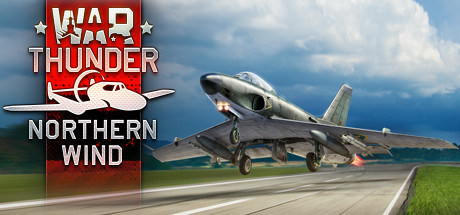
Today, we’re pleased to announce that a new line comprised of Dutch and Belgian aircraft will be making their way to War Thunder as part of the French air tree! In the next major update these vehicles will be reinforcing the French ranks, so let’s take a look!
The BeNeLux Union
[expand type=details]
The economic union between Belgium, the Netherlands and Luxembourg was formally established in 1944, with the initial intention of supporting the post-war recovery between the three nations, which have very strong diplomatic, trade, and of course geographical ties.
[/expand]
Belgian Air Force
[expand type=details]
The Belgian Air Force was officially formed in 1946, but operated as a branch of the Belgian Army as early as 1909! Despite this early formation, Belgium had a relatively small air force during the First World War due to a general lack of available aircraft, despite this though the small force boasted several aces.
During the outbreak of the Second World War, Belgium was similarly equipped with only a small force of older designs, which couldn’t stand up to the far more numerous Luftwaffe fighters. Despite the surrender on May 28th 1940, a small group of Belgian pilots in exile operated with the RAF, flying Spitfires and Typhoons.
Into the jet age, Belgium flew a variety of famous examples throughout the years, and currently operate several variants of the much loved F-16, as well as brand-new F-35.
[/expand]
Royal Netherlands Air Force
[expand type=details]
Similarly to Belgium, the Royal Netherlands Air Force was formed in 1953, but operated as a branch of the army from 1913. As the Netherlands remained neutral during the First World War their air activity during this time was primarily spent on training and the general growth of the air branch.
During the German invasion of the Netherlands in the Second World War, the Royal Netherlands Air Force was overwhelmed by the superior numbers of the Luftwaffe, losing all of their combat aircraft and the vast majority of their pilots as well. A number of Dutch pilots escaped however, and flew in RAF and RAAF service until the end of the War. Pilots of the Dutch colonies in the East Indies actively resisted the Japanese air force, and then continued fighting as part of the Australian Air Force.
After the Royal Netherlands Air Force was officially founded, the ranks of their service aircraft were filled with a wide variety of American and British planes, with their types upgrading and improving over time to suit modern requirements.
[/expand]
Meet the new line!

This new branch in the French aviation tree will contain a mix of Belgian and Dutch aircraft. The collective is indeed known as BeNeLux, but as Luxembourg currently does not and did not operate any military aircraft historically (aside from army transport, liaison and recon) they won’t be represented here in the air tree. Let’s take a look at the first batch of aircraft!
Zitat:
Developer comment: Our overall goal with the inclusion of a BeNeLux line is to give France more options and versatility, allowing for the creation of stronger lineups throughout the ranks with a variety of different vehicles. BeNeLux don’t quite have enough machines to make a full tree on their own without significant gaps in unit types and eras, so in order to include these machines in War Thunder they’ll be supporting the French tree.
The majority of vehicles joining the line first will be made up of British and American vehicles that were historically used, with the line kicking off with the familiar Gladiator Mk I, which was ordered in the late 1930s. Belgium will be receiving a wide variety of units overall, including the British Spitfire FR Mk XIVe, Meteor Mk 8, as well as the American F-104G, F-16A Block 15 and the F-16AM Block 15 MLU! They’ll also be receiving the Mirage 5BA, a variant specifically intended for Belgium.


The Netherlands will also have some interesting examples in the line, including the British Firefly FR Mk IV, Hunter F.6, and of course the domestic Fokker G.1A! This variant is armed with 8 x 7.9 mm machine guns in the nose, the caliber may be small but the concentration of fire is undeniably high!


These aircraft will be the first to join the French ranks as part of the new line in the next major update, though of course more examples will be making their way into the game in the future as well.
We’re very happy to include these aircraft and their unique history into the game. We hope you’ll enjoy bolstering your lineups with these powerful aircraft upon the release of the next major update, so until then stay tuned! There’s a lot more to come.
